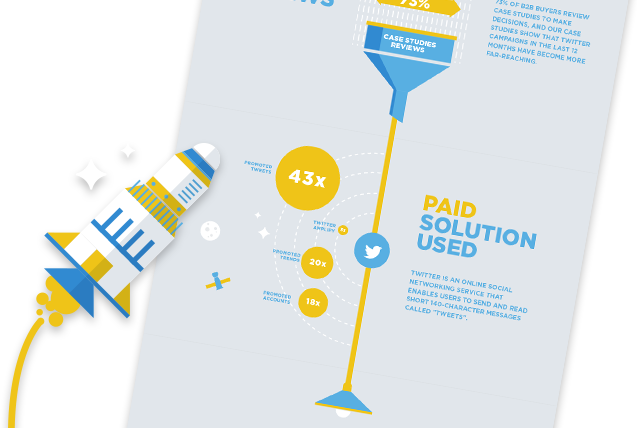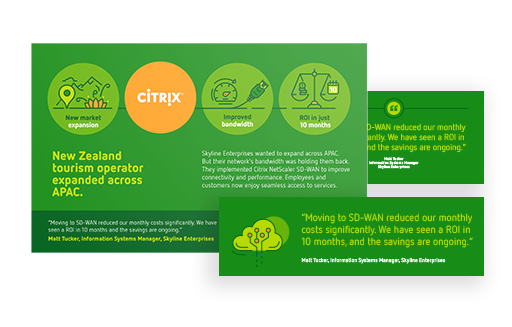
Customer success stories are the hidden gems of a thriving B2B business, showcasing real-world examples of how your products or services have made a tangible impact on clients. By sharing these stories, you can build credibility, inspire trust, and effectively communicate your value proposition to potential customers.
First things first - What are customer success stories?
Customer success stories are real-life examples of customers who have achieved positive outcomes and results through using a product or service. These stories highlight the benefits and successes experienced by customers and serve as proof of the value and effectiveness of the product or service. For instance, a customer success story could showcase how a software solution helped streamline a company's operations, resulting in increased efficiency and cost savings.
These stories provide practical examples of how the product or service can solve specific challenges and deliver tangible results, giving potential customers confidence and reassurance in their decision-making process.
Importance of customer success stories
Customer success stories in B2B hold immense value for businesses. By showcasing real-world examples, these stories demonstrate how a product or service solved specific challenges faced by customers. They provide potential buyers with insights into how the solution can be implemented and the benefits it can deliver. For instance, a customer success story could illustrate how a CRM platform streamlined sales processes, resulting in a significant increase in revenue and uplift in customer experience.
These narratives enhance credibility, build trust, and validate the effectiveness of a B2B offering, ultimately influencing purchasing decisions in a tangible way.
Benefits of using customer success stories
Customer success stories offer a powerful way to showcase the benefits of a product or service. By sharing real-life examples of satisfied customers, businesses can demonstrate the value and impact of their offerings. These stories provide practical evidence of how a product or service has helped customers overcome challenges or achieve their goals.
For instance, a customer success story may highlight how a software solution streamlined operations for a manufacturing company, resulting in increased efficiency and cost savings. By presenting tangible examples, businesses can build credibility and trust with potential customers, making success stories an effective marketing tool.
Building Trust and Credibility
Building trust and credibility is a critical aspect of showcasing customer success stories. When customers see real-life examples of how a product or service has benefited others, it reinforces the credibility of the brand. For instance, sharing how a company helped a customer achieve significant cost savings through their innovative solutions demonstrates the effectiveness and trustworthiness of their offerings.
Additionally, highlighting how a client achieved their desired outcomes, such as increased productivity or improved customer satisfaction, further establishes the brand's credibility. By presenting practical and general examples of customer success stories, companies can build trust and credibility among potential customers.
Increasing Lead Generation
Increasing lead generation is a crucial aspect of customer success stories. By implementing effective strategies, businesses can attract a larger audience, resulting in higher conversion rates. For instance, optimizing website content and landing pages can entice visitors to provide their contact information.
Additionally, using targeted email campaigns can nurture leads and guide them through the sales funnel. Social media platforms also play a significant role in generating leads, as they allow businesses to engage with potential customers and drive traffic to their websites. Implementing these tactics can help businesses achieve their lead generation goals and ultimately boost their overall success.
Sales Enablement
Sales Enablement is a critical component of customer success stories. It is the process of equipping sales teams with the necessary tools, resources, and knowledge to effectively engage with customers and close deals.
For example, providing sales reps with access to relevant customer stories and testimonials can help them showcase the value of a product or service to potential customers. Providing them with quick summary slides that they can incorporate into their proposals and existing presentations is another opportunity for a win.
Additionally, sales enablement involves training the sales team on how to effectively use sales enablement platforms, which can streamline the sales process and improve productivity. By implementing a robust sales enablement strategy, businesses can empower their sales teams to drive successful customer outcomes.
Key Takeaways:
Customer success stories can greatly benefit businesses in several ways. These stories, which highlight the positive experiences and results of customers using a company's products or services, can serve as powerful marketing tools.
Firstly, they build credibility and trust by showcasing real-life examples of how a business has solved a customer's problem or helped them achieve their goals. This social proof can influence potential clients and help them make informed decisions.
Additionally, customer success stories can be used at various stages of the sales funnel, aiding in lead generation, converting prospects into customers, and fostering client relationships. They offer tangible evidence of a company's capabilities and can help differentiate it from competitors. By featuring success stories on their website, social media platforms, and marketing materials, businesses can effectively showcase their expertise, build brand reputation, and attract more customers.







